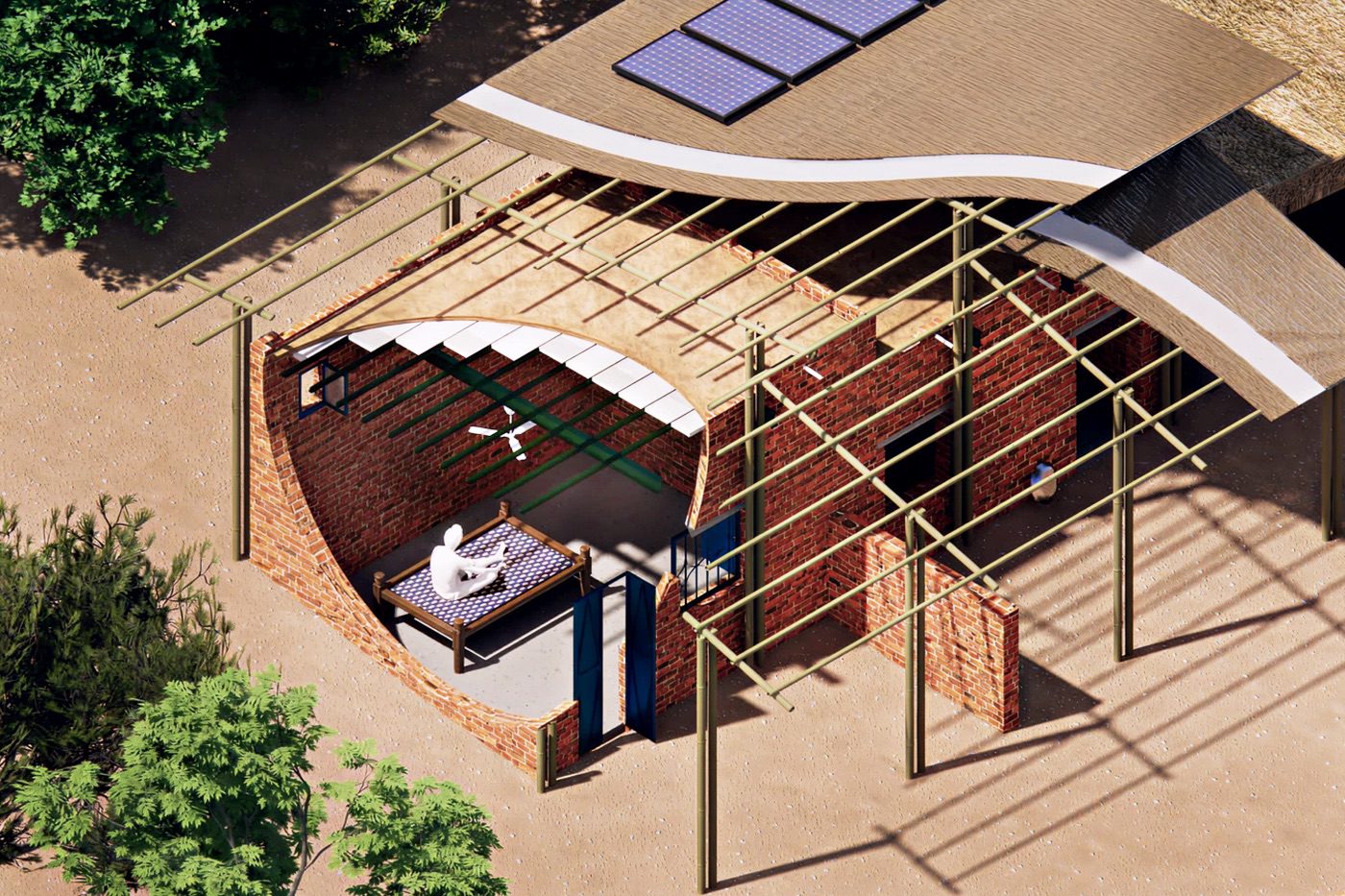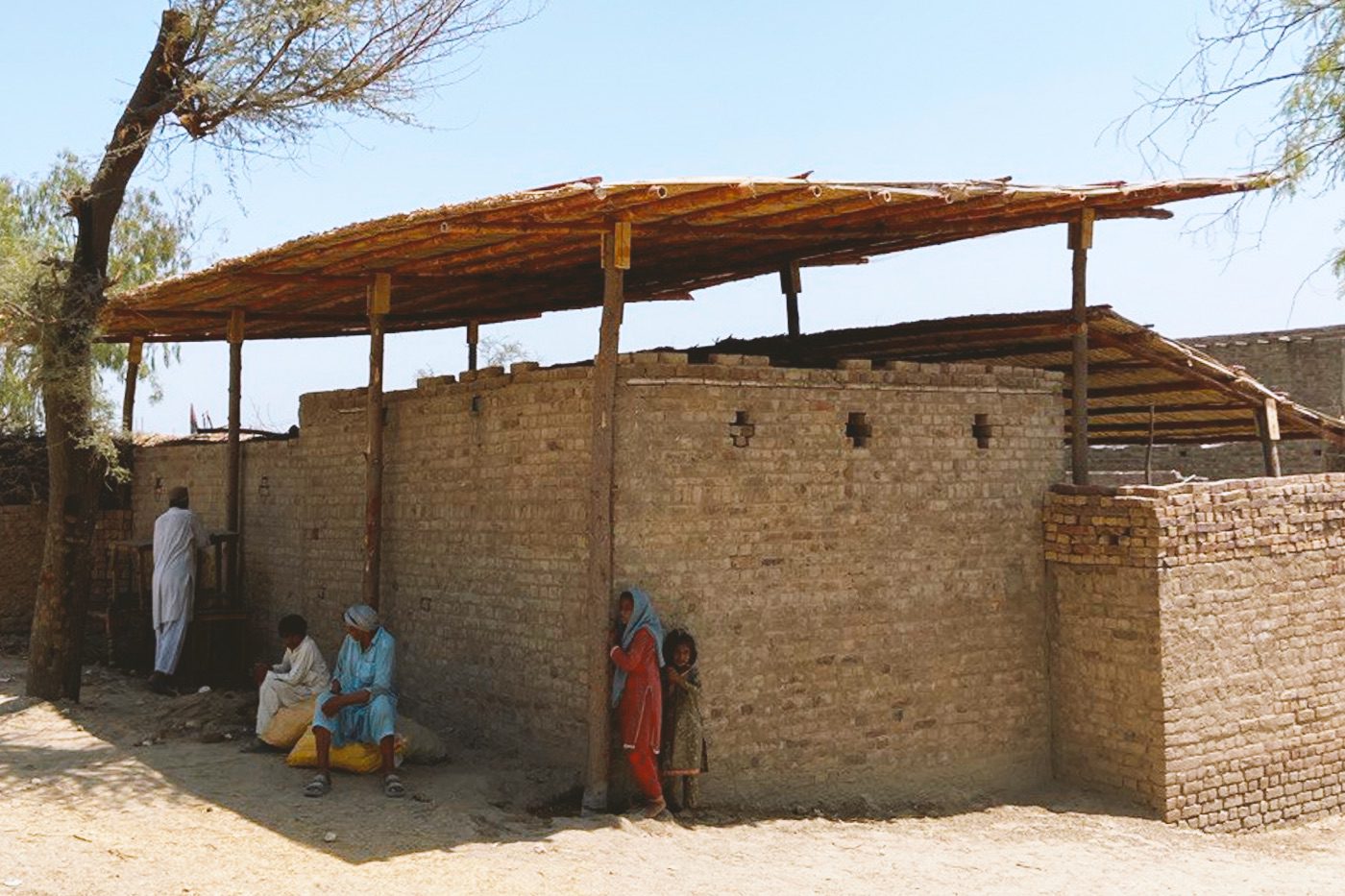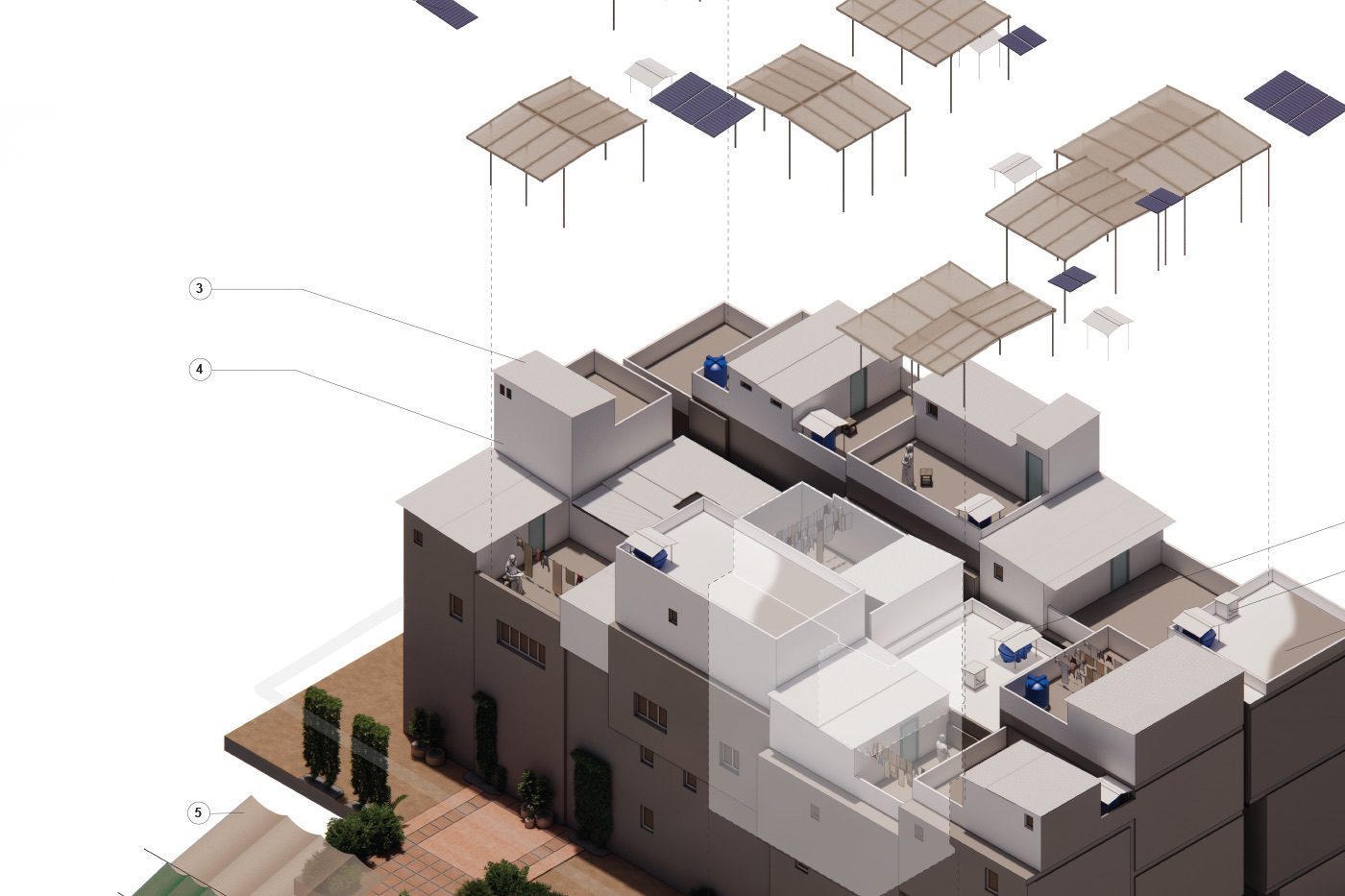Project implementation: Pakistan
Project development: Pakistan, Gambia, United Kingdom
SHAPES is a multi-year research project evaluating the effectiveness of structural adaptations to extreme heat in Pakistan, implemented in urban and rural locations in Karachi and Sindh province.
Pakistan faces significant challenges related to climate change, including rising average temperatures and more frequent and intense heat waves, amidst rapid urbanization. These trends are already translating into health impacts: higher rates of heat-related illnesses (heat exhaustion and heat stroke), dehydration, and kidney stress; exacerbations of cardiovascular and respiratory diseases, along with impaired sleep and mental health. Pregnant women, infants, the elderly, and people with chronic conditions face the greatest risk, with extreme heat linked to adverse pregnancy outcomes.
In dense urban settlements, common building typologies offer limited shading or cross-ventilation while storing heat overnight. In rural areas, thin screened structures and sparse services intensify daytime peaks and interrupt recovery. Intermittent power and water supplies, overcrowded housing, and air pollution amplify exposure and limit access to effective cooling.
SHAPES focuses on the potential effectiveness of several low-cost, high-impact building-scale measures, including lightweight, locally sourced shading (woven bamboo structures), lime-based mortars, solar-reflective paints, building cladding, additional ventilation, shade structures, selective planting where feasible, and small solar photovoltaic installations to maintain essential fans and lighting during grid outages. These interventions are delivered as part of a broader community-led community action.
These interventions are being evaluated as part of two cluster-randomized controlled trials (one urban, one rural) led by the Aga Khan University in collaboration with the London School of Hygiene & Tropical Medicine and the Bartlett School of Architecture, UCL. The trials evaluate clinical effectiveness with a primary outcome of heat-related illness, and secondary outcomes including indoor temperature and thermal comfort, personal exposure and physiology, service use, and maternal health outcomes.
Research and data collection include the use of drone thermography and LiDAR-based building measurements, along with parametric thermal modeling and rapid home suitability surveys using images, video, and questionnaires. A custom data platform was developed to organize and analyze high-volume survey information for informal housing, supporting site- and building-specific proposals that can be implemented at low cost and enabling community-led decision-making on where and how interventions are installed. Measuring at the house and neighborhood scales makes it possible to identify local heat island patterns and evaluate neighborhood-scale approaches to reducing urban heat accumulation.
Joseph Augustin — Environmental designer and architect; Senior Research Fellow and Lecturer, The Bartlett, UCL. Founding director of Heat Island (London).
Christopher Burman — Urban technologist and researcher; Senior Research Fellow and Lecturer, The Bartlett, UCL; Co-founder of Heat Island (London)
In collaboration with: Z.A. Bhutta; J.K. Das (Aga Khan University); A. Bonell; A. Haines; S. Cousens (LSHTM)




